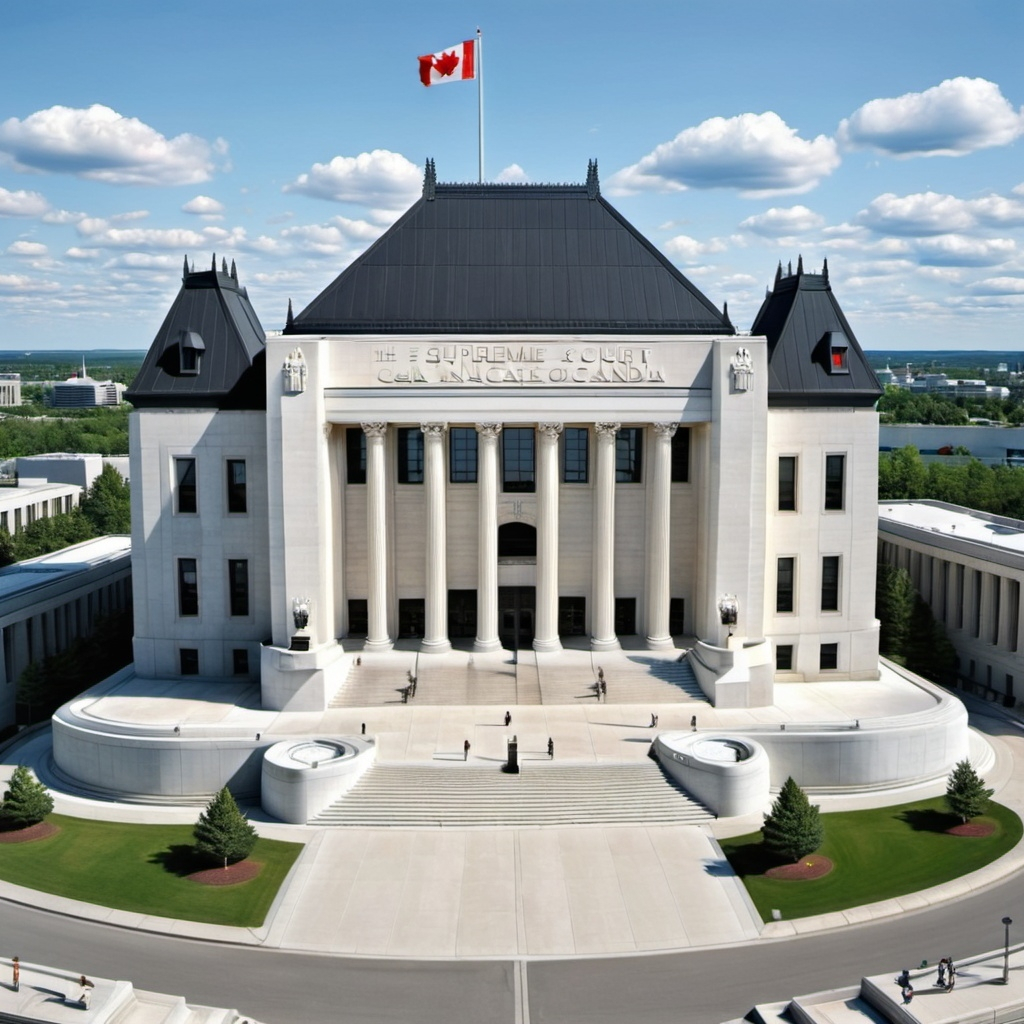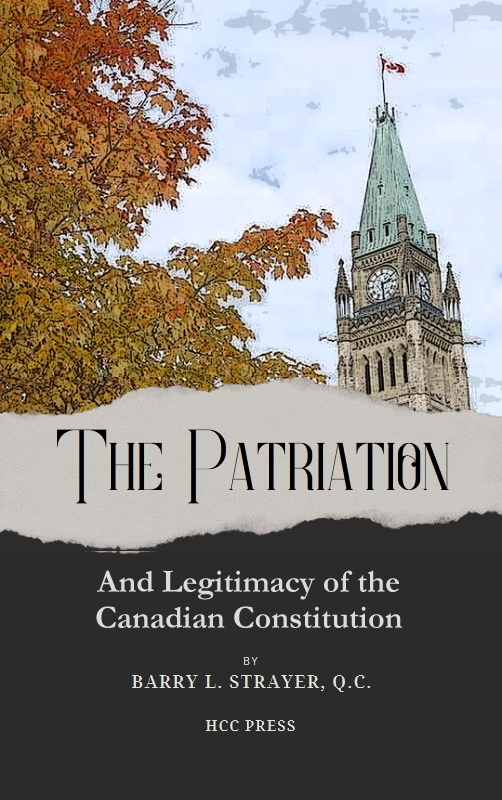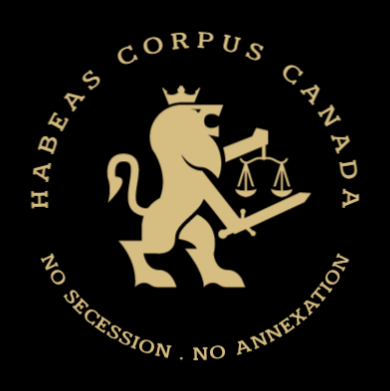
The Canadian Charter of Rights and Freedoms is void as inoperable
The fundamental problem with the whole Charter is the Section 1 “guarantee and limitation” clause, often called the “operating system” (the OS) of the Charter. I will show you that there is in fact no “operating system”. The Charter is therefore void as inoperable.
What is the text of the Section1 “guarantee and limitation” clause?
1. The Canadian Charter of Rights and Freedoms guarantees the rights and freedoms set out in it subject only to such reasonable limits prescribed by law as can be demonstrably justified in a free and democratic society.
Section 1 “guarantee and limitation clause” (a phrase used often in the law journals) is alleged to “limit” the ability of government to “trench on” (interfere with) guaranteed rights.
In fact, the s. 1 “guarantee and limitation clause” is so vague (overbroad) that it does not constitute a cognizable limit.
Let’s look at the full statement. The guarantee clause (for short) comes right after the preamble of 1982, and it reads as follows with header and marginal note:
Guarantee of Rights and Freedoms
Marginal note: Rights and freedoms in Canada
1. The Canadian Charter of Rights and Freedoms guarantees the rights and freedoms set out in it subject only to such reasonable limits prescribed by law as can be demonstrably justified in a free and democratic society.
The crucial part of that statement, where the main problem occurs, is here:
“in a free and democratic society”.
If I look up “a” in my WordWeb desktop dictionary from Princeton, it says:
a: “Indefinite article, ‘an’ is used before a vowel sound, ‘a’ otherwise”
Then, when I look up “indefinite” in my WordWeb, it says:
“Vague or not clearly defined or stated”.
So, now, I understand (I already knew it from public school grammar class) that “a” is the indefinite article, and refers to something imprecise that is “vague or not clearly defined or stated”.
I then look up the opposite of “indefinite”, which is “definite”, and WordWeb says it means:
“Precise; explicit and clearly defined”.
We therefore know that the opposite of “a” is “precise; explicit and clearly defined”. There happens to be a “definite” article that contrasts with “a”, and that’s “the”. The “definite” article “the” refers to something precise and clearly defined.
The indefinite article “a” (or an) refers to nothing in particular because by definition, when it is used, it means something you can’t put your finger on.
Therefore, when the Charter says “a free and democratic society”, it is not in fact referring to anything definite, clearly defined or stated.
Which means that the model against which the Charter theoretically wants Judges to “limit” government action, is itself so vague that it cannot function as a knowable limit.
If the limit isn’t knowable, the government interference with it, by extension, cannot be “demonstrated”.
Depending on the judge sitting on a “Charter” question, the perfect or ideal example of “a” “free and democratic society” in his or her mind could well be the USSR.
We in fact have or had a judge whose entire legal career before he landed on the bench was devoted to Soviet political institutions and Soviet-style “charters” of rights. So, once this fellow got a seat on the bench, we might reasonably imagine that his idea of limiting government action came from his devotion to the political ideals of the USSR as “a” free and democratic society.
The other problem with the “guarantee and limitation clause” that proves the vagueness of the whole idea is the adjective “democratic”. Well, what is “democracy”? Can you point to a specific concrete example of what that is? One that excludes any other options? Because, if you can’t, then there is no such specific tangible thing as “democracy”.
My Princeton WordWeb dictionary says “democracy” means “majority rule”. Well, “majority rule” under what rules, where, under what system?
Can you point to the ideal “democracy” whose government can be used as a concrete example of how NOT to interfere in a guaranteed right? If so, we should explicitly adopt it, or some other equally clear example, as defining the meaning of “limit” in the 1982 Charter.
Conclusion:
We therefore have the fascinating situation that the Section 1 “guarantee and limitation clause” cannot in fact “limit” government action because there is no definite limit stipulated at Section 1. There is no concrete example of a particular “free and democratic society” against which to “demonstrate” a reasonable limit to government interference with guaranteed “rights and freedoms”.
Because you cannot use a vague allusion to demonstrate anything precise. You cannot use a vague allusion as a real limit on action.
Since there is no precise limit stipulated at s. 1, government action (and therefore as well the action of the courts in reacting to requests to limit government action under the Charter), is without any concrete, tangible guideline or objective “boundary” against which to measure whether government action “demonstrably” interferes with a claimed right in a given situation.
Judges therefore do as they please. They subjectively decide what a limit is because they subjectively decide what “a free and democratic society” is. And they subjectively impose on the government, and therefore on the litigant, whatever they feel personally happy with imposing.
Which means that Brian Dickson’s Oakes Test is only smoke and mirrors. It’s a little pirouette prior to judgment that makes you think something has been verified, measured and declared, but nothing of the kind has happened.
All Charter judgments are therefore necessarily completely subjective and arbitrary. They have nothing to do with a Platonic (or passionless; non-subjective) ideal of “freedom” because the ideal is not and likely cannot be demostrated in order to use it as a guideline.
Any judge with any philosophical training, or any ideological bent, or with none of the above, can do as he or she pleases under s. 1 of the Charter, make a pronouncement, and run the show without any limits on judicial action. Because s.1, if it were a real limit, necessarily limits the courts as well as the government. The courts would have to be umpires calling the shots based on verifiable rules; but they’re not. They’re judicial kings making law. They pull the Charter out of their hats, one decree at a time. And is this even “law”? Real law must be promulgated, knowable in advance in order to be complied with by those it governs.
I’ll borrow an illustration from a speech of Chief Justice Beverley McLachlin in her Lord Cooke (pronounced Coke) Lecture in Wellington, New Zealand on December 1st, 2005:
Jeremy Bentham decried what he saw reflected in the common law of crimes. In 1792, he wrote that it amounted to “dog law.” “When your dog does any thing you want to break him of,” he explained, “you wait till he does it, and then beat him for it. This is the way you make laws for your dog: and this is the way the Judges make law for you and me.”
Under the Charter, judgments are newspapers, not law and the judges deliver beatings, not rulings. Ironically, C.J. McLachlin herself had a hand in meting out plenty of “dog law”.
We therefore have the dupery, in fact, of an “Oakes test” pioneered by Justice Brian Dickson apparently based on European sources, but totally meaningless because the “limit” of “a” free and democratic society” at Section 1 is itself meaningless.
Moreover, I strongly suspect that there is no way to state a cognizable limit in order to amend Section 1 to be meaningful.
For a clear limit to exist, there would have to be a Platonic ideal somewhere of the perfect “free and democratic society” that we could point to and say, “Hey, look! They don’t do it that way, they do it this way, we have to do it the way they do it.”
But that raises another conundrum. How would we recognize the perfect “free and democratic society” if we saw it? Surely, our impression of whether it was ideally free and democratic or not would be entirely subjective.
So, we can’t point to it.
The very first clause of the 1982 Charter is void and of no significance. The “operating system” (OS) of the Charter is a dud. I therefore conclude that the Charter is void, because inoperable. That’s an alternative conclusion, because my first and preferred conclusion is that the Charter is void because it was a coup d’état, not a constitutional amendment as alleged.
Therefore, since 1982, the blind have been leading the blind, and a farce has been unfolding of entirely subjective opinions imposed in lieu of a definite, identifiable, measurable, recognizable limit.
We could go further. My Wordweb dictionary from Princeton says that an “abstract noun” is “[a] concept or idea not associated with any specific instance”. In which case, the Charter is a collection of deceptively attractive abstract nouns to which the courts give meaning on the fly, with no definitions and no perceptible limits to guide them.
![]()

